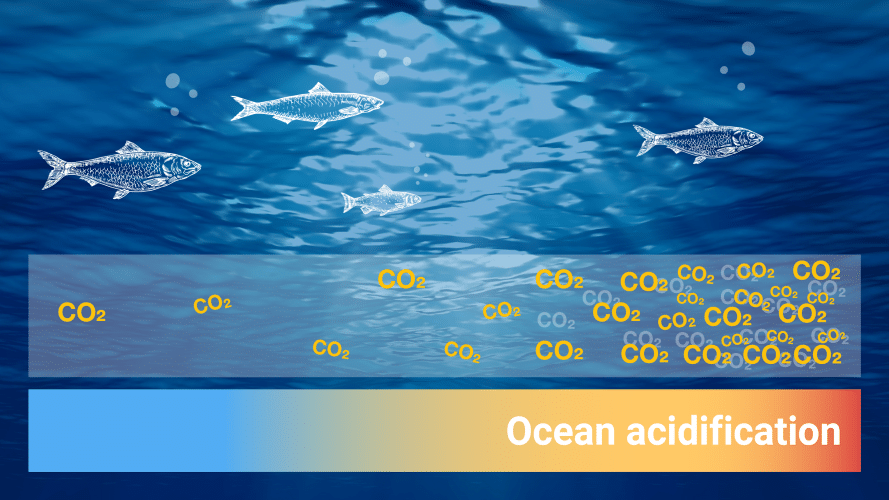Ocean Acidification: A Deepening Crisis

Ocean acidification is a pressing environmental issue that has gained significant attention in recent years. A new study published in Science Advances by researchers Jens Müller and Nicolas Grube from the Institute of Biogeochemistry and Pollutant Dynamics at ETH Zurich sheds light on the alarming depths of this phenomenon. By utilizing a sophisticated 3D model of the world’s oceans, the researchers have examined the impact of carbon emissions since the industrial age on marine chemistry. Their findings reveal that, as of 2014, ocean acidification has reached an average depth of 1,000 meters, with some areas affected as deep as 1,500 meters. This article explores the implications of these findings, the ecological consequences, and the urgent need for action.
Impact of Carbon Emissions on Ocean Chemistry
The study highlights the direct correlation between rising atmospheric carbon dioxide levels and changes in ocean chemistry. Since the industrial revolution, the oceans have absorbed a significant amount of CO2, leading to increased acidity. This process is similar to how carbonated beverages taste acidic due to dissolved carbon dioxide. The researchers used critical indicators such as proton concentrations, pH levels, and aragonite saturation states to model changes in ocean CO2 levels from 1800 to 2014.
The results indicate that regions influenced by ocean currents, particularly the Atlantic meridional overturning current, exhibit more pronounced acidification at greater depths. This trend poses a serious threat to marine life, especially for organisms like pteropods. These small, free-swimming mollusks have calcium-based shells that are highly susceptible to acidic conditions. As the ocean continues to absorb more CO2, the chemical balance of seawater shifts, making it increasingly difficult for these organisms to survive. The implications of this research are profound, as the health of marine ecosystems relies heavily on the delicate balance of ocean chemistry.
Ecological Consequences and Future Risks
The deeper penetration of acidification into the oceans could have dire consequences for marine ecosystems. Coral reefs, which are already under threat from rising sea temperatures, face additional challenges due to the changing chemical composition of their habitats. Acidification can hinder coral growth and resilience, making them more vulnerable to bleaching events and disease. Reports suggest that the scale and intensity of acidification could disrupt food chains and biodiversity in deeper ocean layers.
Moreover, the effects of ocean acidification extend beyond individual species. The interconnectedness of marine life means that changes in one area can ripple through the entire ecosystem. For example, as pteropods and other shellfish struggle to maintain their shells, predators that rely on these organisms for food may also face challenges. The researchers emphasize the urgent need to address carbon emissions to mitigate further harm to marine environments. Their work provides critical insights into the long-term implications of industrialization on global ocean systems, underscoring the importance of immediate action.
Call to Action: Mitigating Ocean Acidification
The findings from this study serve as a wake-up call for policymakers, environmentalists, and the general public. The increasing depths of ocean acidification highlight the urgent need for comprehensive strategies to reduce carbon emissions. Transitioning to renewable energy sources, enhancing energy efficiency, and promoting sustainable practices are essential steps in addressing this crisis.
Public awareness and education are also crucial. Understanding the impact of our actions on the ocean can inspire individuals and communities to make more environmentally conscious choices. Additionally, supporting policies that prioritize ocean health and climate action can lead to meaningful change.
Observer Voice is the one stop site for National, International news, Sports, Editor’s Choice, Art/culture contents, Quotes and much more. We also cover historical contents. Historical contents includes World History, Indian History, and what happened today. The website also covers Entertainment across the India and World.

